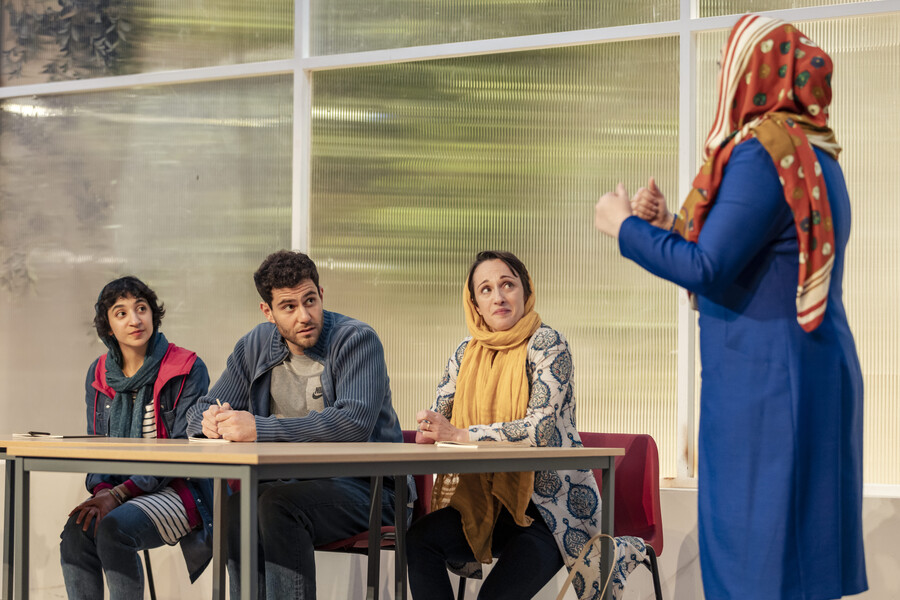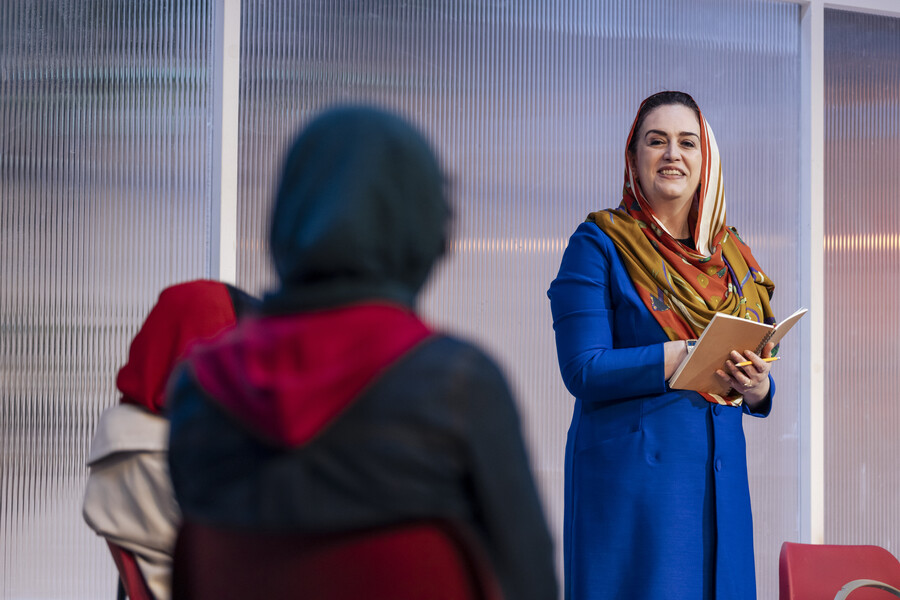
10 May – 1 June
Learning a new language propels you into a different mental space – one where you flounder and struggle and, according to one character in Sanaz Tossi’s new play, feel like ‘an idiot.’ English explores what it means to grapple with a foreign tongue, tracing four students and their teacher through a single term at a language school in Tehran. The play follows their linguistic and personal journeys, exploring themes of dislocation, transience and what it means to belong. It is rich in ideas, propelling us into novel dramatic territory. But as a stage work it lacks power and thrust. There is no plot in the traditional sense, only the story of five overlapping lives. When term ends and their test is completed, the characters drift apart. Life goes on. There is some change. But what change there is doesn’t spring from the interaction of the characters. The result is not dull. But it is curiously unmoving.
What makes the play watchable and frequently enjoyable is the strength of the performances. Lanna Joffrey is touching as Roya, the grandmother who wishes to join her family in Canada. Serena Manteghi is engaging as lively, combative Elham, who wants to continue her medical studies in Australia. Their brisk, efficient teacher Marjan (Nadia Albina) hints at something dark in her backstory. Sensitive Goli (Sara Hazemi), the youngest, is fascinated by the person she becomes when she speaks a different language.
What little plot there is centres on the role of Omid (Nojan Khazi), the sole male. His English is surprisingly good, and the women are mistrustful. From the audience’s point of view, his very presence as a lone man stretches credulity, particular when he joins Marjan during her office hour to watch romantic English videos. It seems unlikely that a female teacher in any country would permit this degree of intimacy with a male student.
There are humorous moments. Forced to speak in English, the students’ incomprehension and confusion is palpable. And their frustration with the childish games leads to some affecting moments. But the language school is a bubble. Apart from the students’ desire to travel, there is little sense of the international politics that isolate their country or the restrictions on their personal lives. And while there is frequent verbal reference to the gap between Iran and the West, the gap is never manifest through the drama.
The women wear brightly coloured headscarves but in other respects the setting is drab. As for sound, there are songs, but only when chosen as part of the regular conversation drill. Most new plays use music, light and colour in interesting ways and it is unusual and disappointing to see theatrical potential so little exploited. It’s hard not to feel that English could have worked equally well, if not better, as a radio play.
The emotional high point comes when Roya, the character with the fewest lines but the strongest stage presence, speaks movingly of why she needs to hold onto her language and culture. It is a rare moment of theatre magic in a play which touches on fascinating topics but never quite transports the audience into its imagined world.
★★★☆☆ Ros Carne, 16 May 2024
Photo credit: Richard Davenport


